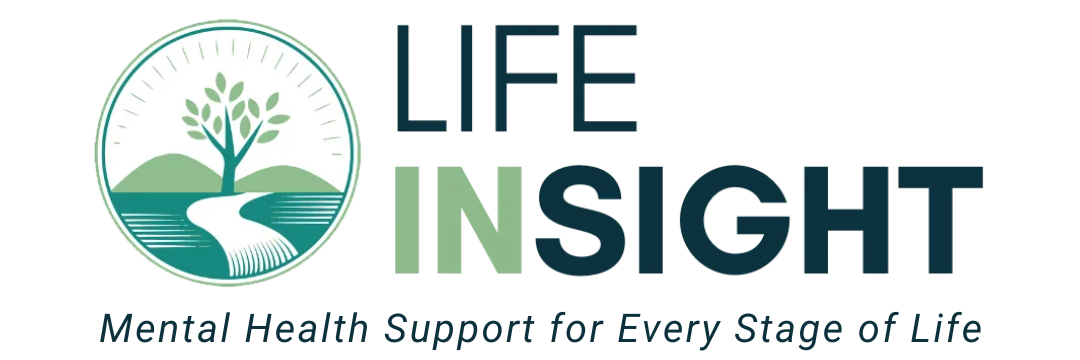Cognitive Behavioral Therapy: A Practical Path to Mental Wellness
Life InSight
If you’ve been feeling the weight of anxiety, depression, or overwhelming stress, Cognitive Behavioral Therapy (CBT) could be exactly what you need. CBT is a proven, effective approach that helps people break free from negative thought patterns that might be holding them back. CBT offers a practical solution to improve mental health and well-being.
What is Cognitive Behavioral Therapy?
CBT is based on the idea that our thoughts, feelings, and actions are all connected. Often, we fall into patterns of negative thinking without even realizing it. For example, you might face a tough situation and think, “I’m just going to fail,” or “I’m not good enough.” These thoughts can quickly lead to feelings of hopelessness, stress, or anxiety.
The goal of CBT is to help you recognize these negative thoughts, challenge them, and replace them with healthier, more constructive thinking. As you shift your thoughts, your feelings and behaviors naturally improve, helping you respond to life’s challenges in a healthier way.
How Does CBT Work?
One of the great things about CBT is its structured, goal-oriented nature. This isn’t just a space to talk about your struggles—it’s about finding practical solutions. Here’s how it usually works:
- Spotting Negative Thoughts: You’ll start by working with your therapist to identify the negative thoughts that automatically come up in difficult situations. These might be thoughts like, “I always mess up,” or “Nothing ever goes right for me.”
- Challenging Those Thoughts: Once you’re aware of these thoughts, the next step is to challenge them. Are they really true, or are they based on assumptions or past experiences that don’t reflect your current reality?
- Changing Your Behavior: As you start shifting your thinking, you’ll notice your behavior begins to change too. For instance, if you tend to avoid social events out of fear of judgment, CBT helps you approach those situations with a new mindset.
- Tracking Your Progress: You’ll keep track of how these changes are affecting your life. This allows you to adjust strategies as needed, ensuring that you’re continuously moving toward your mental health goals.
Common CBT Techniques
- CBT provides you with a variety of tools to help reshape your thoughts and behaviors. Some of the most common techniques include:
- Cognitive Restructuring: This involves identifying distorted thoughts and replacing them with more balanced ones. For example, instead of thinking, “I’ll never succeed,” you might learn to say, “I’ve faced challenges before, and I’ve come through.”
- Exposure Therapy: Often used for anxiety, this technique involves gradually confronting your fears in a controlled way. Over time, you’ll find that your fear response weakens, making it easier to manage anxiety-provoking situations.
- Behavioral Activation: If depression has you stuck in a rut, this technique encourages you to start doing things you enjoy again, even in small steps. Whether it’s picking up an old hobby or reconnecting with friends, these activities help lift your mood.
- Mindfulness: This practice helps you stay focused on the present moment, reducing stress and anxiety by not getting caught up in worries about the past or future.
Real-Life Examples of CBT
Let’s break it down with a couple of everyday scenarios:
- Social Anxiety: If social situations make you anxious because you fear people will judge you, CBT can help you reframe that thought. Instead of assuming everyone is watching and judging you, you might start to think, “Most people are too busy focusing on themselves to notice if I’m a little nervous.” Over time, this new perspective helps you feel more comfortable in social settings.
- Depression: Someone struggling with depression might have a thought like, “I’m a failure,” or “Nothing good ever happens to me.” CBT helps challenge these beliefs by looking at the evidence. You might reflect on times when things have worked out or on achievements you’ve made, helping you shift to a more positive, realistic view of yourself and your life.
Why CBT is a Great Option for Bergen County Residents as Well as Virtual Patients
If you’re in Bergen County and looking for a way to manage anxiety, depression, or stress, CBT is a practical and effective option. Life InSight also offers virtual options in New York, New Jersey and Colorado. It gives you the tools to change your thinking, and with that change comes the power to improve your emotions and actions. CBT can empower you to take control of your mental health, and the structured approach makes it easier to track progress and see results.
Cognitive Behavioral Therapy has helped countless people take control of their mental health by changing the way they think. If you’re curious about how CBT techniques can work for you, don’t hesitate to reach out. Whether you’re seeking cognitive behavioral therapy near me or just want more information, CBT offers a clear, effective path to better mental health.
Take the first step toward feeling better and schedule your free consultation today.

Every April, Autism Awareness Month invites us to reflect—not just on challenges—but on opportunities. One of the most powerful, lasting investments we can make in a child's future is helping them build meaningful social connections. For kids and teens on the autism spectrum, the social world can be hard to navigate. Understanding unspoken rules, reading facial expressions, or knowing how to join a conversation doesn't always come naturally—and those gaps can impact friendships, confidence, and even independence. That's where social skills support comes in. Why Social Skills Support Is Essential Social success isn't just about fitting in. It's about understanding how to connect—and having the confidence to try. Many kids on the spectrum want to make friends but aren't sure how. Others may shy away from social situations because they feel unsure or overwhelmed. Unfortunately, traditional therapy or school settings don't always offer focused support for these challenges. A structured social skills program creates space to slow things down, practice key behaviors, and build relationships in a supportive, low-pressure environment. What Social Skills Programs Look Like Life InSight's social skills programs are built around real-life situations and age-appropriate goals. These aren't lectures. They're active, hands-on sessions where kids learn by doing—together. Here's what that might look like: Small group settings where peer modeling happens naturally Role-playing everyday situations like ordering food or joining a game Practicing turn-taking, conversation starters, reading body language, and managing conflict Opportunities to use new skills in real-world scenarios—with support These moments might seem small, but they build toward something bigger: the ability to connect, adapt, and thrive. Who Can Benefit Most While every child is different, we've seen social skills programs be especially valuable for: Kids who've been recently diagnosed and are starting their care journey Children moving into a new school phase (elementary to middle school, etc.) Those struggling with friendships, isolation, or anxiety in social settings Families whose IEPs or school supports aren't fully addressing social needs Even a few sessions can help unlock confidence and make group settings less intimidating. Why It Matters Long-Term When kids feel competent socially, it changes everything. They engage more in school. They experience less frustration and fewer behavioral outbursts. Their self-esteem grows. And perhaps most importantly, families feel more hopeful about their child's ability to build meaningful relationships—now and into adulthood. This Autism Awareness Month, let's commit to more than awareness. Let's take action. If you think your child could benefit from structured social skills support, we're here to guide the way. Let's build a connection—together.




